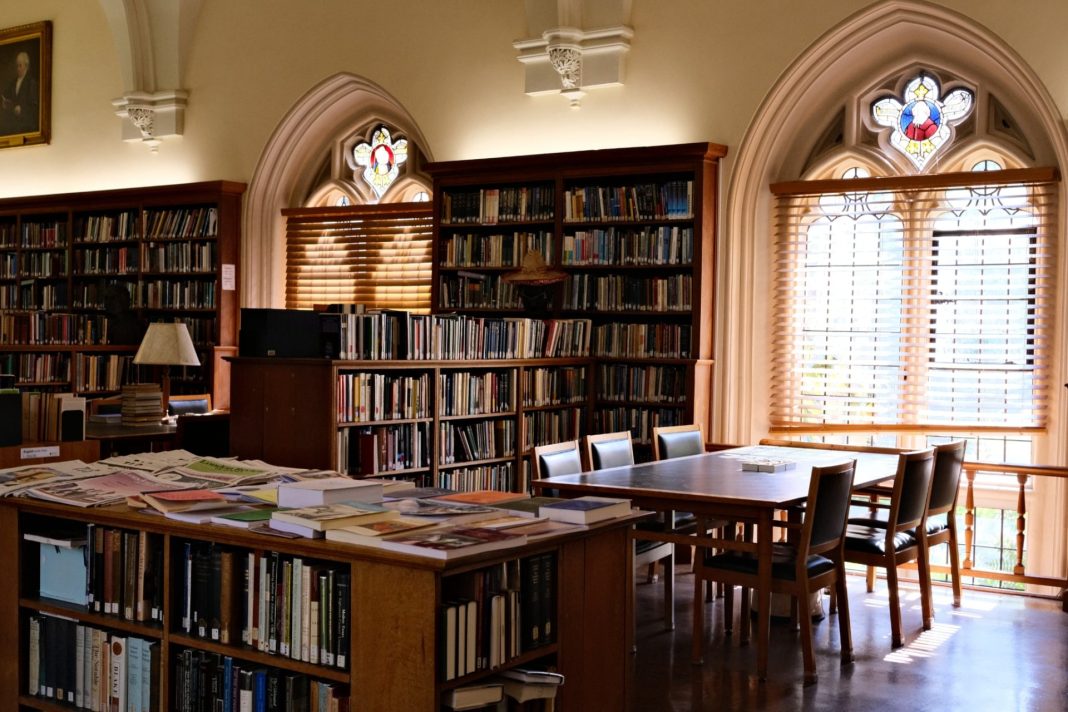In discussion of ‘the great man theory’, Professor Dominic Scott discussed his recent reading – War and Peace by Leo Tolstoy – during his lectures on Plato’s Republic last term. Where Tolstoy and Plato stand on the great man theory has somewhat escaped me; the more interesting takeaway was Scott’s choice of reading material. I imagine a thick, intimidating, leather bound volume which is bound to be full of archaic language. Scott himself mentioned that it was necessary to read War and Peace twice to fully get to grips with it. It sounds like a slog and isn’t something I’ll be tackling any time soon.
Of course an Oxford philosophy professor is reading such classic literature as War and Peace. But how usual is this? And what do our professors read? Is the mass consumption of classic literature a trait unique to our humanities professors? Or is this more widespread amongst academics?
To quench my curiosity, I reached out to a number of professors and tutors at my college to find out what they read in their spare time. Not only did I receive a surprising number of responses, but some tutors had kindly spent a lot of time detailing their reading habits, giving an extensive list of titles and authors, and recommending some of their favourite books. As one might expect, there were far more responses from the humanities professors compared to those in STEM subjects, yet this is not to say there was no engagement from that field. One computer science professor got in touch to let me know that he sadly did not have much time to read anything other than scientific papers.
I asked these professors whether they found reading to be an escape from their field of study or if reading was yet another way they could remain immersed in their subject. The response I received overwhelmingly favoured reading as a form of wider research. Associate Professor of French, Simon Kemp, shared that he had been reading Mathématiques Congolaises by In Koli Jean Bofane. Written in French by a Congolese author, the story follows a young man who uses maths to make sense of the world around him. He reflected that even if what he reads isn’t used for research or teaching, it’s all literature and sparks ideas and comparisons as well as informing us of the diversity of literary culture around the world. Although it was reassuring to hear that he is often more enthused about beginning a new book than finishing those he had started.
I was intrigued by a recommendation from my ancient philosophy tutor, Associate Professor Karen Margrethe Nielsen: Drive Your Plow Over the Bones of the Dead by Olga Tokarczuk is a murder mystery novel set during Polish winter. The novel follows Janina as she attempts to uncover who has been committing violent murders in her isolated village. Nielsen also mentioned her recent reading, Armand V by Dag Solstad, a Norwegian writer who sadly passed away last month. Armand V follows Armand as he grapples with his duty to support his country in foreign wars and his private aversion to combat. While Nielsen does not read philosophical novels, she enjoys when the main characters grapple with a philosophical question as these things are best addressed when “immersed in human life”.
Many of the professors I contacted shared that they used their leisure time to read articles and books related to papers they are currently writing. Having just finished reading The Spice Route by John Keay, Professor Charles Spence, psychologist and head of the Crossmodal Research Laboratory, finds that leisure reading is a chance to carry out research. The Spice Route combined research for a paper on spices with a sense of escapism. Similarly, for Renaud Lambiotte, professor of mathematics, leisure reading time is a chance to “open your scientific horizons”; his focus is upon discovering papers either directly or less directly related to his field of study. Surprisingly, he also enjoys French comics and had recently been reading some poems by the Russian poetess Anna Akhmatova.
It appears common for professors to read around their professional subject during their spare time. Associate Professor Robin Klemm, a tutor of medicine at Somerville, reads lay science literature not directly on his field of research. He doesn’t feel the need to escape because of his genuine scientific interest. Yet in historical novels he finds a sense of connectedness and integration. For stipendiary lecturer of plant biology, Timothy Walker, similar escapism can be found in regency romance by the likes of Jane Austen and Georgette Heyer. Dr Luke Pitcher has recently been taking a break from the classical world with the satirical novel The Way We Live Now by Anthony Trollope.
For the historians among us, Associate Professor of medieval history, Benjamin Thompson, recommends The Bookbinder of Jericho by Pip Williams. Set during World War I, it tells the story of twins who live in a narrowboat and work as bookbinders at Oxford University Press. Thompson shared many of his recent reads including Precipice by Robert Harris, which tells of Herbert Asquith’s affair with Venetia Stanley; The Cadfael Chronicles by Ellis Peters, a medieval murder mystery series; and A Woman of No Importance by Sonia Purnell, a book about the life of a female spy working during World War II.
Engaging with our tutors and professors in this way was surprisingly refreshing. Not only was their reading incredibly varied but there is a lot here I shall be adding to my own TBR. Having anticipated more War and Peace and the like, the literature our tutors partake in seems far more accessible than initially thought. The eagerness with which they shared the books they have enjoyed was also rather humanising; it seems students and tutors may have more in common than one might expect.


